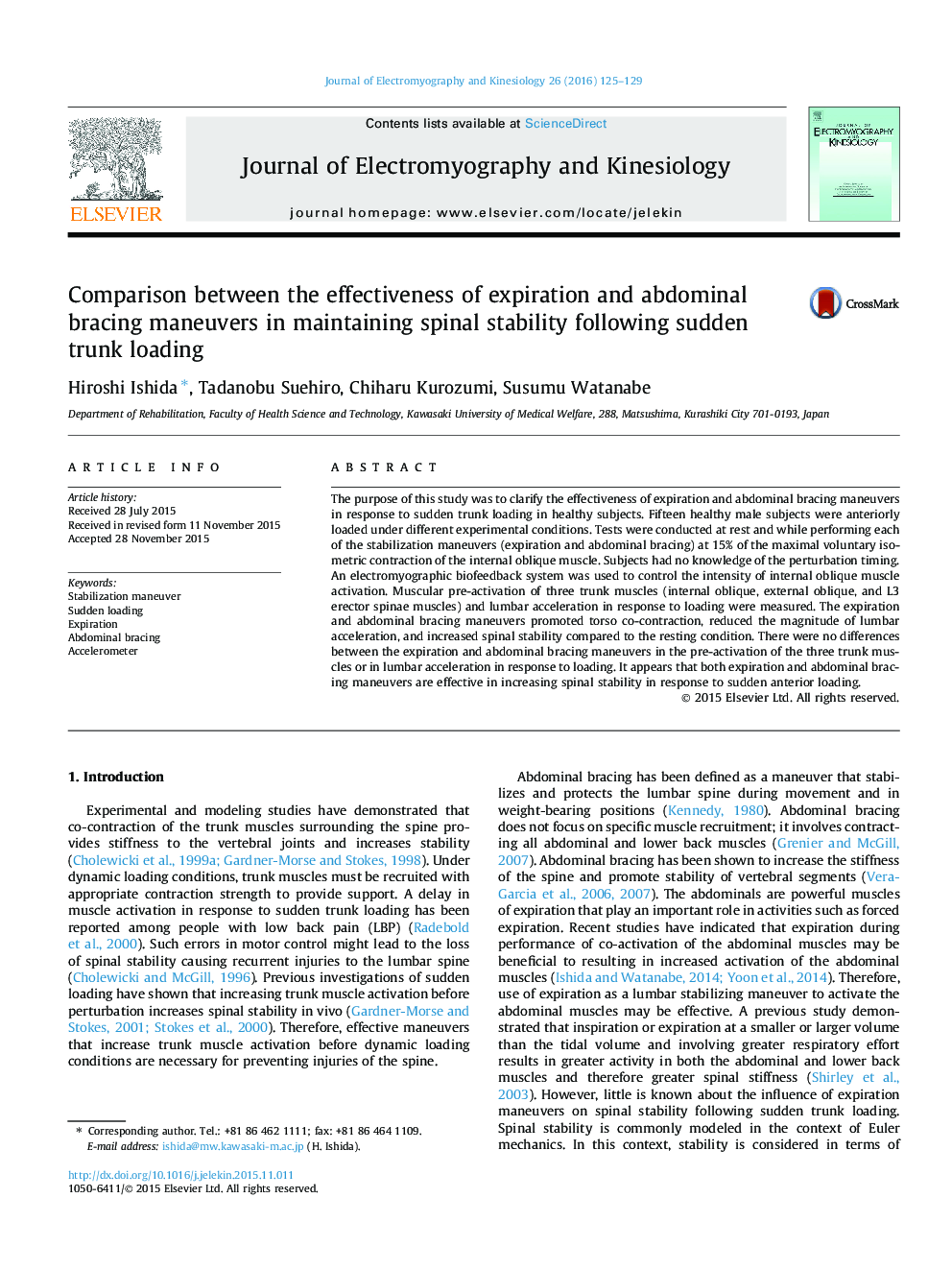| Article ID | Journal | Published Year | Pages | File Type |
|---|---|---|---|---|
| 4064446 | Journal of Electromyography and Kinesiology | 2016 | 5 Pages |
The purpose of this study was to clarify the effectiveness of expiration and abdominal bracing maneuvers in response to sudden trunk loading in healthy subjects. Fifteen healthy male subjects were anteriorly loaded under different experimental conditions. Tests were conducted at rest and while performing each of the stabilization maneuvers (expiration and abdominal bracing) at 15% of the maximal voluntary isometric contraction of the internal oblique muscle. Subjects had no knowledge of the perturbation timing. An electromyographic biofeedback system was used to control the intensity of internal oblique muscle activation. Muscular pre-activation of three trunk muscles (internal oblique, external oblique, and L3 erector spinae muscles) and lumbar acceleration in response to loading were measured. The expiration and abdominal bracing maneuvers promoted torso co-contraction, reduced the magnitude of lumbar acceleration, and increased spinal stability compared to the resting condition. There were no differences between the expiration and abdominal bracing maneuvers in the pre-activation of the three trunk muscles or in lumbar acceleration in response to loading. It appears that both expiration and abdominal bracing maneuvers are effective in increasing spinal stability in response to sudden anterior loading.
